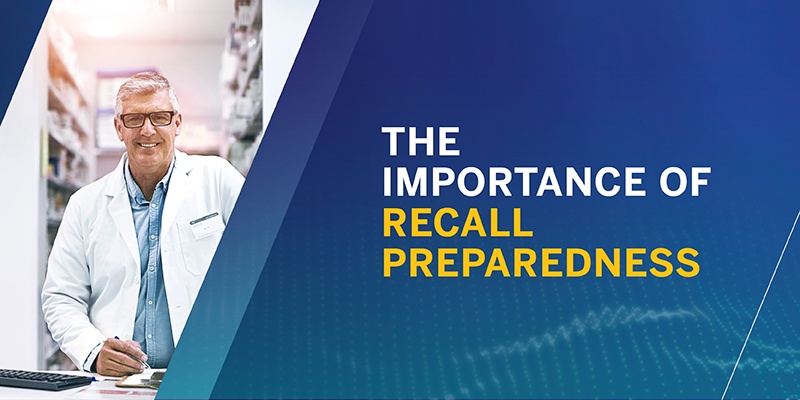
Product recalls are one of the most serious challenges a pharmaceutical company can face. The consequences of mishandling a recall reach far beyond lost product—they can endanger patient safety, trigger regulatory action, and cause lasting damage to a company’s credibility. Despite this, many organizations continue to treat recall planning as an afterthought rather than an operational priority.
To avoid being caught off guard, companies must take a proactive approach that goes beyond having a basic procedure on file. True preparedness requires cultivating a culture of readiness—one where teams understand their responsibilities, communication channels are established, and the entire organization can act decisively under pressure.
This kind of agility is critical because, in a recall situation, time is not on your side. Every minute that a potentially harmful product remains on the market increases the risk to patients. A well-practiced recall process allows companies to act quickly and accurately, reducing exposure and mitigating harm. That level of execution can only be achieved when procedures are defined, understood, and regularly reinforced through real-world simulation.
Beyond safeguarding public health, recall readiness also plays a key role in meeting regulatory expectations. The FDA enforces strict standards for how and when recalls must be reported and executed. Companies that lack preparation risk not only operational setbacks but also serious legal and financial consequences. By contrast, those with an up-to-date recall plan can respond confidently, fulfilling compliance requirements and maintaining the trust of regulators.
Even with a solid plan, however, preparedness must be tested to be trusted. That’s why leading pharmaceutical organizations integrate mock recalls into their ongoing operations. These simulated scenarios allow teams to validate protocols, uncover hidden gaps, and improve cross-functional coordination before a real recall occurs. Over time, such exercises turn planning into muscle memory—ensuring that when a crisis does strike, the response feels second nature rather than reactive.
Strong planning and regular training are most effective when supported by the right team. Recalls touch nearly every corner of the organization, from legal and compliance to logistics and public relations. Creating a cross-functional recall team ensures that no detail is overlooked. When each function has a clear role—and the team as a whole operates as a unit—recall execution becomes faster, more efficient, and far less chaotic.
This holistic approach doesn’t just protect the company in a crisis; it also reinforces the organization’s long-term resilience. When stakeholders—from regulators to healthcare partners to consumers—see that a company is transparent, responsive, and well-organized during a recall, it builds confidence in the brand. In fact, a well-managed recall can serve as a moment to demonstrate corporate responsibility rather than failure.
In today’s tightly regulated and reputationally sensitive pharmaceutical environment, recall readiness is not a luxury—it’s a necessity. Companies that invest the time and resources into strong planning, testing, and team alignment today are positioning themselves not just to survive a future recall but to emerge from it stronger.
Preparedness, in the end, is not only about preventing risk—it’s about demonstrating leadership, responsibility, and a deep commitment to the well-being of patients and the integrity of the industry.
